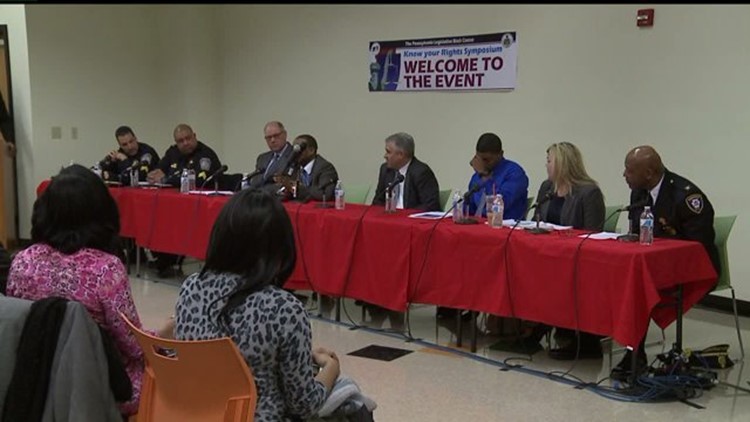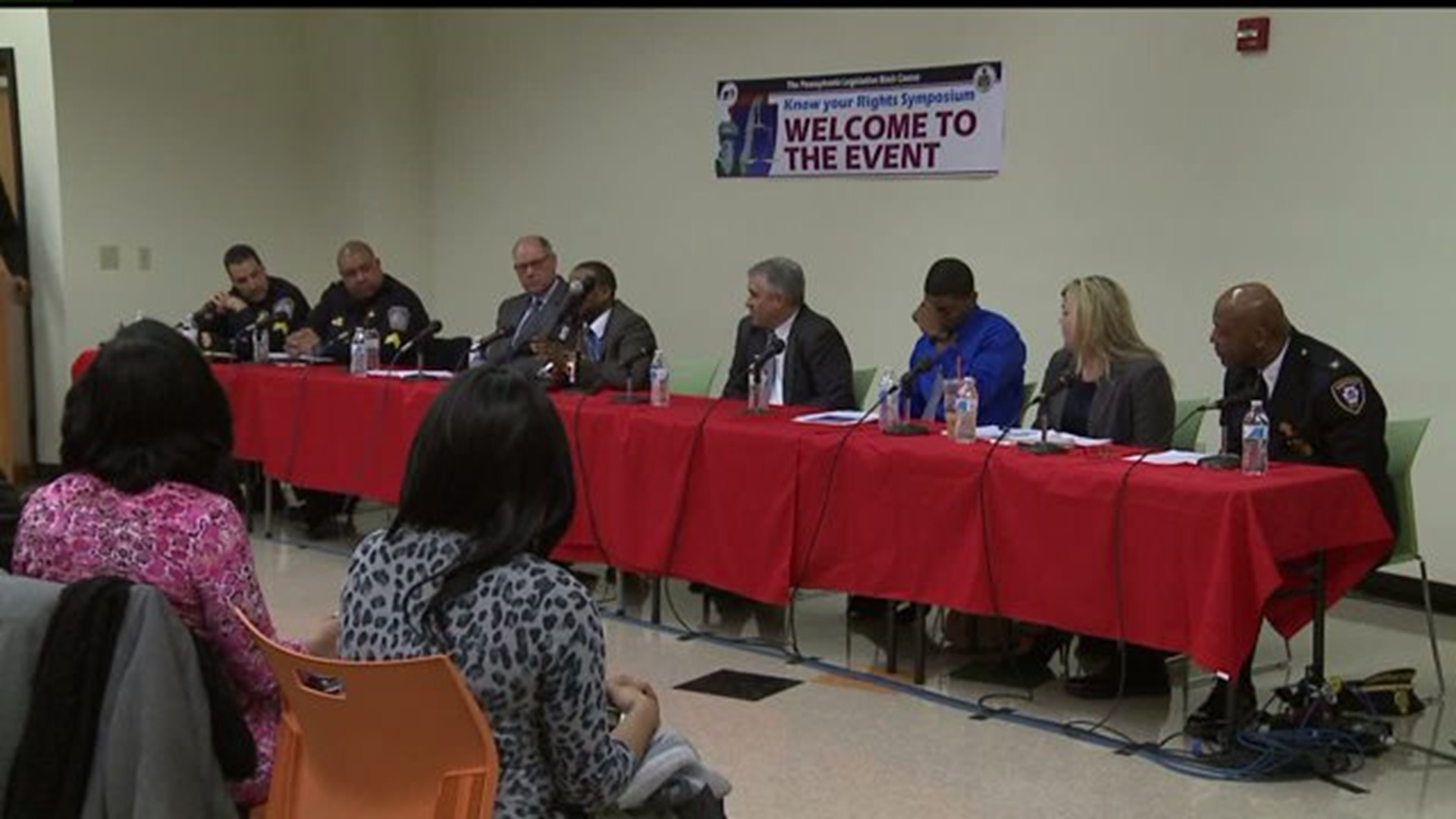Police officers took on questions of racial profiling and other concerns at a meeting in Harrisburg Tuesday night. It was organized by the Pennsylvania Legislative Black Caucus to educate people about their rights when they’re stopped by police.
The “Know Your Rights” Symposium was crowded Hamilton Health Center. Some people said they wanted to raise concerns with police, including Cindie Watkins of Harrisburg.
“They’re pulling people over, usually with tinted windows, usually if they’re Causcasion they let them go, if they’re African Americans they give them a really hard time,” says Watkins, speaking about Capitol Police on the State Street Bridge. “I do know that the citizens here have a distrust of the police, and the police are always saying they want concerned citizens to let them know whats going on.”
Harrisburg police Chief Thomas Carter says officers don’t stop cars to cause problems. But he, the District Attorney and other speakers said policing needs to change.
Carter says his officers complete diversity training.
“I think that we have to change the way that we do business with the public, police agencies have to understand that we’re here to protect and to serve the public, and what comes out of our mouth tends to get us into trouble,” says the Chief.
For the criminal justice panelists, “Know Your Rights” means knowing two of the most important rights in an arrest: your right to remain silent and your right to an attorney. If you’re stopped by police, you’re advised to obey the officer.
Show your ID and give your name, and answer basic questions like what you’re doing. But do not answer incriminating questions, such as how much you’ve been drinking, and just say you are exercising your right to remain silent. Ask for an attorney rather than go into an interrogation alone.
“Just comply with law enforcement’s order and let the rules of justice work itself out,” says Brandon Flood, executive director of the PLBC.
If you have been mistreated by police, file a complaint with the police department before you file a lawsuit. That way the district attorney will investigate it and it could help your suit. Track down any witnesses who may have seen the incident.
“Police officers do not look for trouble they are just people and most of us we are married, we have families like everybody else, and we want to go home safely like everybody else,” says Carter.




